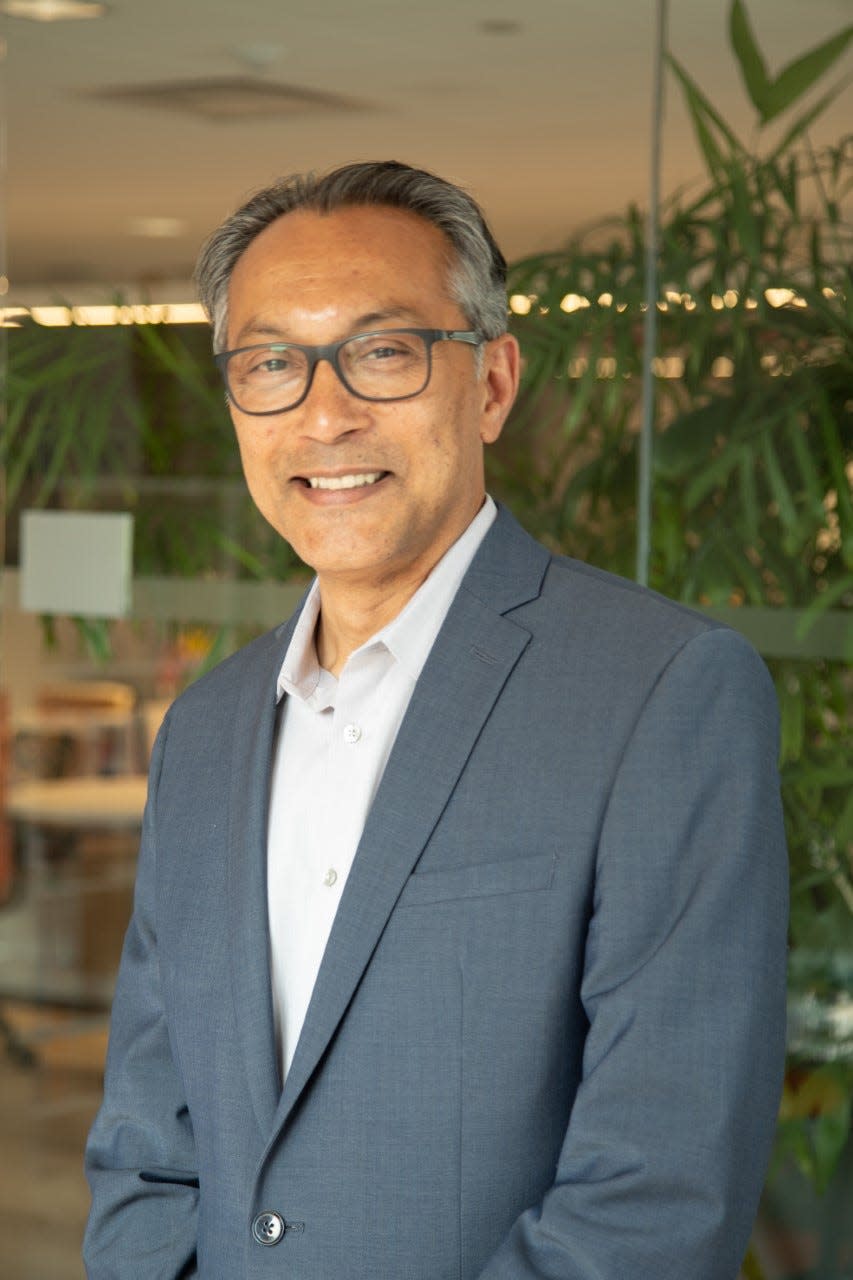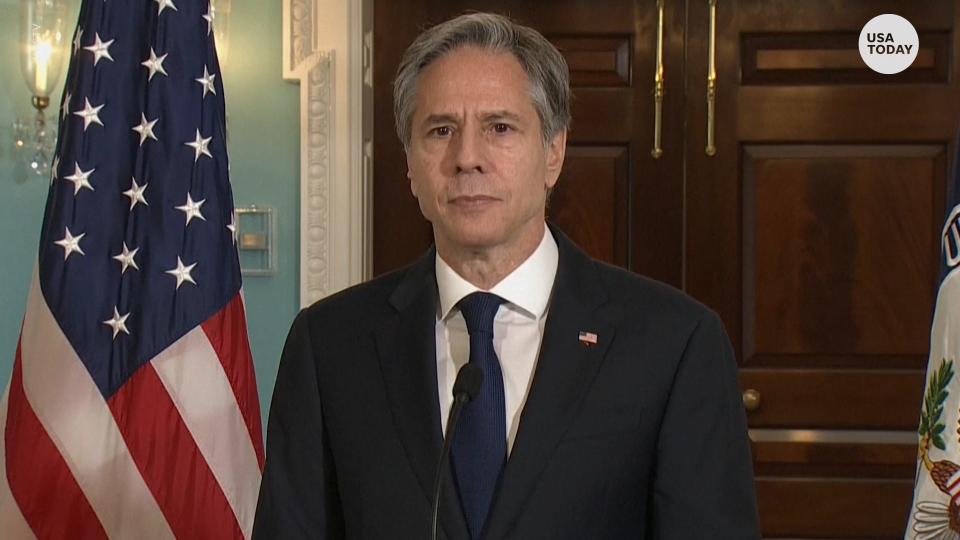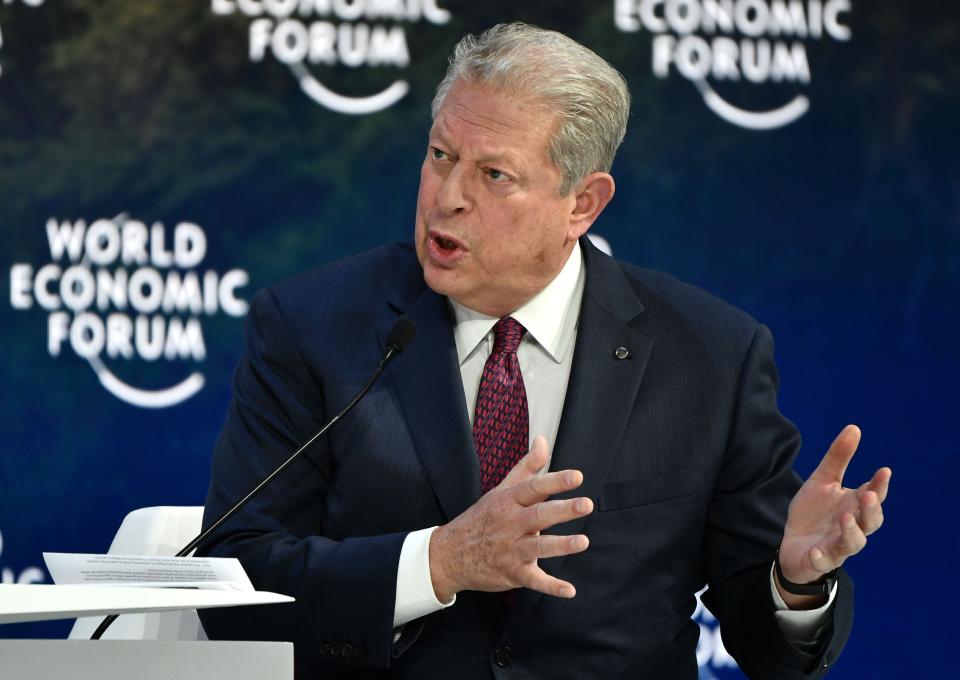'Ultimate injustice': World leaders, climate experts react to grave United Nations report
A 3,800-page report released Monday details the "grave and mounting" threat to the world's well-being from the warming climate.
"Climate change isn't lurking around the corner waiting to pounce," said Inger Anderson, executive director of the United Nations Environment Programme. "It's already upon us, raining down blows on billions of people."
The report concludes a years-long effort by more than 270 scientists in the U.N.'s Intergovernmental Panel on Climate Change Working Group II to measure the far-reaching consequences of global warming and lay out potential solutions.
Already, warming overlaps with other challenges to reduce access to water and sanitation and harms human health, food security and biodiversity, the panel of experts said in a news conference Monday morning.
UN panel's grim climate change report: 'Parts of the planet will become uninhabitable'
The report drew swift response from world leaders and climate scientists.
Here's a selection of their remarks:

"Today’s IPCC report paints a dire picture of the impacts already occurring because of a warmer world and the terrible risks to our planet if we continue to ignore science. We have seen the increase in climate-fueled extreme events, and the damage that is left behind – lives lost and livelihoods ruined. The question at this point is not whether we can altogether avoid the crisis – it is whether we can avoid the worst consequences. Denial and delay are not strategies, they are a recipe for disaster.
"Fortunately, we have a blueprint for action. The best scientists in the world have shown us that we must accelerate adaptation action, with urgency and at scale. Our efforts to date have been too small and too fragmented to match the scale of the impacts we are already experiencing, let alone the threats we expect in the future. To truly adapt, we must invest in communities, build climate resilient systems and conserve critical ecosystems during this decisive decade."
– John Kerry, special U.S. presidential envoy for climate
More: Read the IPCC's Working Group II report

"Climate change is the ultimate threat multiplier. Take almost anything we already know to be wrong with the world – from hunger, poverty, and lack of access to basic sanitation and health care in low-income countries, to the treatment of Indigenous people and racial injustices in high-income countries – and the climate emergency is making it harder to solve. …
"It’s crucial that we take this can-do message from the report. What we absolutely must not do is allow these findings to fuel a sense of fatalism during such a make-or-break decade. As the IPCC concluded in its 1.5C report, ‘Every year matters and every choice matters.’ And, I would add, every positive action matters.”
– Katharine Hayhoe, Nature Conservancy chief scientist

“Climate change is the ultimate injustice. People with the fewest resources, those least responsible for the climate crisis, bear the brunt of climate impacts. 3.3 billion people, or just over 40% of the global population, now live in highly vulnerable hot spots. If you don’t live in a hot spot, imagine instead a roof blown away, a village well overwhelmed by saltwater, a failed crop, a job lost, a meal skipped – all at once, again and again. Compounding and cascading climate impacts, combined with poverty and conflict, all conspire to upend billions of lives and livelihoods.
“There is hope. We still have a narrow pathway to avoid the very worst climate impacts."
– Ani Dasgupta, President & CEO, World Resources Institute

"The science is clear: We have a quickly narrowing window to rein in climate change by making deep cuts in emissions, investing in adaptation, and advancing climate-resilient development. Further delay in action would be catastrophic for people and the planet, and will also cause substantial, rising, and inequitable economic damages. Richer countries bear a significant responsibility for climate action, including cutting their emissions sharply, paying for the loss and damage they have caused, and rapidly scaling up funding for climate-vulnerable developing nations. "
– Rachel Cleetus, policy director and lead economist for the Climate and Energy Program at Union of Concerned Scientists
More on this topic: As Hawaii declares climate crisis, schools hope Indigenous knowledge will save the islands

"Today’s IPCC report is an atlas of human suffering and a damning indictment of failed climate leadership. With fact upon fact, this report reveals how people and the planet are getting clobbered by climate change. Nearly half of humanity is living in the danger zone, now. Many ecosystems are at the point of no return, now. Unchecked carbon pollution is forcing the world’s most vulnerable on a frog march to destruction, now.
"The facts are undeniable. This abdication of leadership is criminal. The world’s biggest polluters are guilty of arson of our only home."
— U.N. Secretary-General Antonio Guterres

"The climate crisis is already here. The (IPCC) report demonstrates the urgency of adapting and building our resilience to the growing impacts of climate change. The U.S. is committed to working with countries to prepare for this challenge."
— U.S. Secretary of State Antony Blinken, via Twitter
"(Small Island Developing States) contribute the least to global emissions while being among the most severely impacted by climate change – a lament we will continue to make because the world has yet to recognize our plight. Extreme weather, sea-level rise, floods, droughts, and ecosystem degradation and loss are all now synonymous with life on a small island. As things currently stand, (Small Island Developing States') lives and economies are in jeopardy. Reducing emissions at scale and pace is no longer a requirement; rather, it is a mandate we are laying out to developed nations. Half your emissions by 2030 and net-zero by 2050 at the latest – otherwise we will see a climate crisis on a scale that is unimaginable."
– Conrod Hunte, U.N. ambassador for Antigua and Barbados

"We are dangerously close to reaching critical ecological tipping points for our climate that threaten to move humanity into uncharted territory. However, we are also on the cusp of the long-awaited political tipping point, beyond which the world finds the political will to act and save the future of our civilization. Now is the time to move decisively forward in global cooperation to accelerate the net zero transition.
"Our common humanity must bind us ever more tightly together so we can act boldly and definitively to protect the fragile climatic balance upon which human civilization depends."
– Former Vice President Al Gore
This article originally appeared on USA TODAY: UN report on climate change draws call for urgent action from experts

